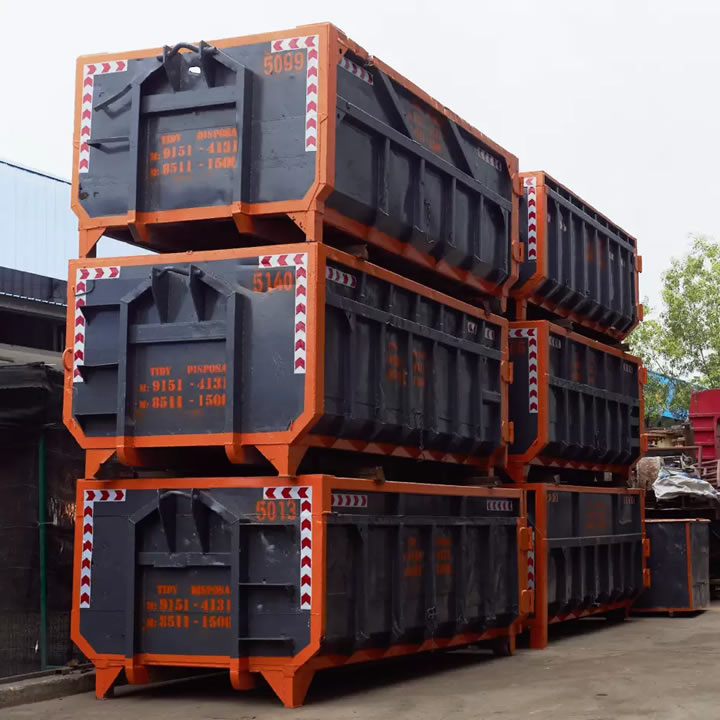In today’s modern world, electronic devices such as smartphones, laptops, and televisions have become a ubiquitous part of our lives.
With the rapid pace of technological advancement, people are continually upgrading their devices, resulting in a significant amount of electronic waste or e-waste. In Singapore, the improper disposal of e-waste can pose serious health and environmental risks.
In this article, we will discuss the importance of proper waste disposal in Singapore.
E-waste contains hazardous materials such as lead, mercury, and cadmium, which can cause severe health problems if they enter the environment. These materials can contaminate soil, water, and air, leading to harmful effects on human health and the environment.
In addition, e-waste also contains valuable metals such as gold, silver, and copper, which can be recycled and reused.
The National Environment Agency (NEA) in Singapore has implemented several measures to encourage proper e-waste disposal. One such measure is the mandatory collection and disposal of e-waste by licensed general waste collectors.
These collectors transport the e-waste to licensed e-waste recyclers, who process the waste in an environmentally friendly manner. Recyclers extract valuable metals from waste, which can be used to manufacture new electronic devices.
Another measure implemented by the NEA is the E-waste Recycling Programme, which provides several e-waste recycling bins throughout the city. These bins allow residents to dispose of their e-waste in a convenient and environmentally friendly manner.
The collected e-waste is then transported to licensed recyclers for processing.
It is essential to note that improper e-waste disposal is a punishable offense in Singapore. Offenders can be fined up to $50,000 or imprisoned for up to three years. Therefore, it is crucial to dispose of e-waste properly.
In conclusion, proper e-waste disposal is vital for a sustainable environment in Singapore. The hazardous materials found in e-waste can pose significant risks to human health and the environment if they are not disposed of correctly.
The NEA’s measures to encourage proper e-waste disposal, such as mandatory collection and the E-waste Recycling Programme, have been effective in reducing the amount of e-waste that ends up in landfills.
As individuals, we must also do our part by disposing of our e-waste properly.
Singapore has been at the forefront of waste management and has implemented several innovative solutions to reduce waste generation. As the city-state continues to grow and develop, there is a need for more sustainable waste management solutions.
One emerging technology in waste disposal is waste-to-energy incineration plants. These plants use advanced technology to convert waste into energy, reducing the amount of waste sent to landfills.
The energy generated from the incineration process can be used to power homes and businesses. Singapore already has several waste-to-energy incineration plants, and the government plans to build more in the future.
Another emerging technology in waste disposal is pyrolysis. Pyrolysis is a process that involves heating waste materials in the absence of oxygen, resulting in the production of gas and liquid fuels.
This technology has the potential to reduce the amount of waste sent to landfills while also producing clean energy. Singapore has already begun exploring the use of pyrolysis in waste management.
In addition to waste disposal technologies, there are also emerging technologies in waste segregation. One such technology is optical sorting, which uses sensors and cameras to sort waste into different categories such as recyclable, non-recyclable, and hazardous waste.
Waste disposal is a critical issue in Singapore, and proper management of waste is essential for the sustainable development of the country. The improper disposal of waste can have severe consequences on human health and the environment, highlighting the need for effective waste management practices.
Singapore has been at the forefront of waste management, implementing several innovative solutions such as mandatory collection and the E-waste Recycling Programme.
The adoption of emerging technologies such as waste-to-energy incineration plants, pyrolysis, optical sorting, advanced robotics, and bioplastics has the potential to shape the future of waste management in Singapore, making it more efficient, sustainable, and cost-effective.
However, the success of waste management initiatives in Singapore requires collaboration between the government, industry, and citizens. Each individual can contribute to waste reduction by practicing proper waste disposal and recycling habits.
The future of waste management in Singapore is promising, and with continued efforts towards sustainable waste management, the country can continue to lead the way toward a greener future.

